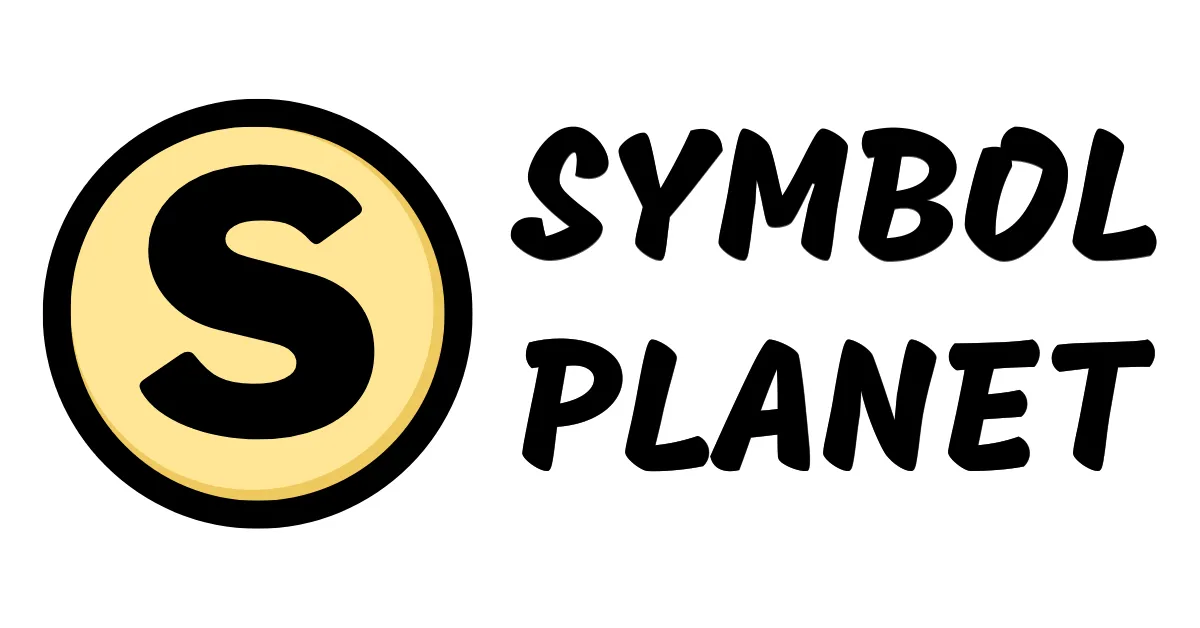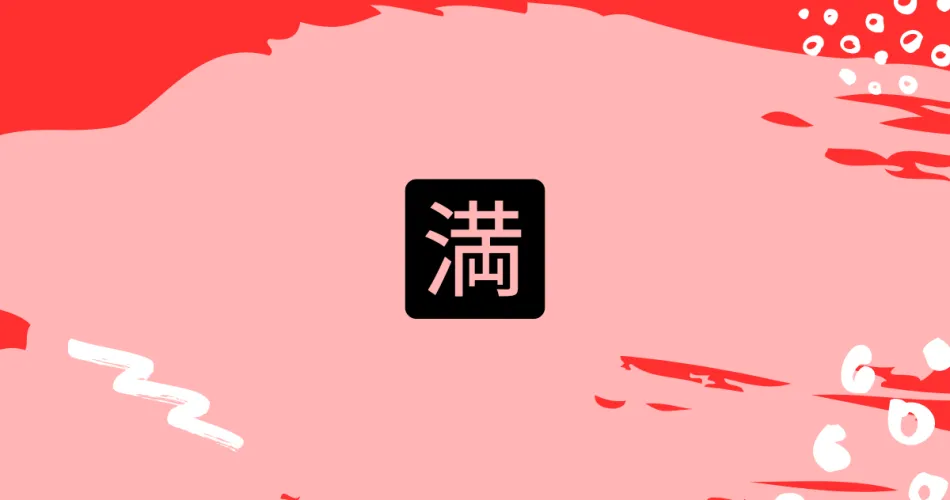Here’s what we’ll cover:
- 🈵 Japanese “no vacancy” button emoji meaning
- How do you reply to 🈵 Japanese “no vacancy” button emoji?
- What does 🈵 Japanese “no vacancy” button emoji mean from a girl?
- What does 🈵 Japanese “no vacancy” button emoji mean from a guy or boy?
- What does 🈵 Japanese “no vacancy” button emoji mean on Snapchat?
- What does 🈵 Japanese “no vacancy” button mean in Texting or Chat?
- What does 🈵 Japanese “no vacancy” button emoji mean on Instagram?
- What does 🈵 Japanese “no vacancy” button emoji mean on TikTok?
- What does 🈵 Japanese “no vacancy” button emoji mean in slang?
- Cultural differences in 🈵 emoji interpretation
- Emoji etiquettes
- Possible combination
- Misinterpretations to avoid
🈵 Japanese “no vacancy” button emoji meaning
The 🈵 Japanese “no vacancy” button emoji means that something is unavailable or not accepting any more reservations.
Meaning 1: No Availability
The emoji is commonly used to indicate that there are no more spaces or spots left for a particular event or activity.
- “Sorry, but the theater is 🈵, all the seats have been taken.”
- “I wanted to try that popular restaurant, but it was 🈵, so we had to find an alternative.”
Meaning 2: Exclusion or Rejection
This emoji can also symbolize rejection or exclusivity, indicating that a person or group is not accepting new members or allowing certain individuals to be part of something.
- “I tried to join the exclusive club, but they had a strict policy in place, so I was 🈵.”
- “The VIP area at the concert was 🈵, only accessible to celebrities and special guests.”
How do you reply to 🈵 Japanese “no vacancy” button emoji?
When faced with the 🈵 Japanese “no vacancy” button emoji, you can reply by using phrases like “Sorry, we’re full,” “No more seats available,” or “We’re all booked up” in a real-world context.
- Sorry, we’re full.
- No more seats available.
- We’re all booked up.
What does 🈵 Japanese “no vacancy” button emoji mean from a girl?
The 🈵 Japanese “no vacancy” button emoji from a girl means that she is currently not interested in any romantic or intimate relationships. It’s like hanging a sign saying “Sorry, my heart is closed for renovations!” Here are a few real-world examples:
- A guy asks her out, but she responds with the emoji, signaling she’s not looking for a relationship at the moment.
- Her friends try to set her up on a blind date, and she sends the emoji, implying she’s unavailable for any romantic rendezvous.
- She receives a flirtatious text, and she playfully responds with the emoji, indicating she’s not interested.
What does 🈵 Japanese “no vacancy” button emoji mean from a guy or boy?
The 🈵 Japanese “no vacancy” button emoji from a guy or boy means that he is currently not interested in any romantic advances or relationships. Just like a hotel with no available rooms, this guy is closed for business when it comes to matters of the heart.
- “Sorry, my heart is at full capacity and there are no vacancies at the moment. Please try again later.”
- “I’m like that red “No Vacancy” sign on a highway motel – closed off to love and relationships for now.”
- “Think of me as the emoji version of a ‘Sorry, I’m not looking for anything serious’ sign.”
So ladies, if you come across this emoji from a guy, it’s best to move on and find someone who’s ready to give love a chance. After all, there are plenty of other heart-shaped emojis in the emoji world!
What does 🈵 Japanese “no vacancy” button emoji mean on Snapchat?
The 🈵 Japanese “no vacancy” button emoji on Snapchat means that someone is not available or busy. It’s like putting up a “do not disturb” sign but in emoji form. So, if your friend sends you the 🈵 emoji, it’s their way of saying “sorry, I can’t chat right now, I’m swamped with work” or “my phone is about to die, catch you later.”
- “Hey, wanna hang out tonight?”
- “Sorry, 🈵 gotta finish this report.”
- “Can you talk?”
- “Nope, 🈵 in a meeting.”
What does 🈵 Japanese “no vacancy” button mean in Texting or Chat?
The 🈵 Japanese “no vacancy” button emoji in Texting or Chat means that you have no more space or availability. It’s like when you’re fully booked or swamped with commitments, but in emoji form.
- “Sorry, can’t make it tonight, 🈵,” you text your friend when they invite you to yet another virtual game night on WhatsApp.
- Your Twitter bio boldly declares, “🈵 for negativity, only room for positivity here!”
- “I wish my schedule had a ‘no vacancy’ button, 🈵,” you complain to your coworker as you struggle to cram in another meeting.
What does 🈵 Japanese “no vacancy” button emoji mean on Instagram?
The 🈵 Japanese “no vacancy” button emoji on Instagram means that the person or place being referred to is currently unavailable or not accepting any new inquiries or requests. It’s like saying “sorry, no room for you here!”
- “I would love to hang out this weekend, but my schedule is 🈵” – indicating that the person is fully booked and doesn’t have any free time available
- “Our new collection is launching soon, but unfortunately, it’s 🈵 for pre-orders at the moment!” – indicating that the product is currently sold out or not available for purchase
What does 🈵 Japanese “no vacancy” button emoji mean on TikTok?
The 🈵 Japanese “no vacancy” button emoji on TikTok means that someone or something is not available or out of stock. It is often used humorously to indicate that the person or thing being referred to is completely unavailable, as if there is no room left in the world for it.
- “When you see the cool new trendy item at the store but it’s sold out everywhere 🈵”
- “Me trying to find a decent parking spot at the mall during the holiday season 🈵”
- “When you desperately need a nap but every bed in the house is occupied by pets 🈵”
What does 🈵 Japanese “no vacancy” button emoji mean in slang?
The 🈵 Japanese “no vacancy” button emoji in slang means that someone is not available or fully booked. It is often used to imply that someone is busy, uninterested, or not open to new opportunities.
- “Sorry, dude, I’m all filled up like that emoji. No room for anything else!”
- “She’s like that ‘no vacancy’ button, bro. Don’t even bother trying.”
- “I asked him to hang out, but he hit me with the ‘no vacancy’ emoji. Guess he’s got better things to do.”
Cultural differences in 🈵 emoji interpretation
Cultural differences in the interpretation of the 🈵 Japanese “no vacancy” button emoji can vary greatly, leading to confusion or amusement.
- “In Japan, the 🈵 emoji represents a full or occupied status, like a ‘no vacancy’ sign hanging at a hotel. However, in America, it could easily be mistaken for a stylish button design or even a mysterious hieroglyphic.”
- “Imagine an American tourist frustratedly pressing the 🈵 button on a Japanese elevator, expecting something magical to happen, only to realize they inadvertently proclaimed ‘No vacancy’ to the whole elevator!”
Emoji etiquettes
When using the 🈵 Japanese “no vacancy” button emoji, remember to use it sparingly and appropriately. Avoid using it when you have plenty of availability and only deploy it when you truly have “no room at the inn.”
- “Sorry, we’re all booked up! 🈵 No vacancies here!”
- “If you see the ‘no vacancy’ emoji, turn around and head the other way — it means we’re full!”
- “Our hotel is so popular, we’re practically living in the land of 🈵 no vacancy buttons!”
Possible combination
Possible emoji combinations that go with 🈵 Japanese “no vacancy” button emoji are: 🏨 for “Fully Booked Hotel”, 🎟️ for “Sold Out Concert”, and 🍔 for “Sorry, No Burgers Left”.
- 🚫 “No More Seats on the Bus”
- 📱 “All Tickets to the New Phone Release Gone”
- ⛽️ “Gas Station with No More Fuel”
- 🛍️ “Store Running Out of Stock”
Misinterpretations to avoid
The 🈵 Japanese “no vacancy” button emoji does not mean “out of service” or “sorry, we’re closed,” but rather indicates that all available spaces or slots have been filled.
- “No more cookies left in the jar, 🈵!”
- “My refrigerator after Thanksgiving dinner: 🈵.”
- “Trying to find a parking spot in New York City during rush hour: 🈵.”
- “When you’re finally ready for dessert, but the ice cream tub is empty: 🈵.”
- “Attempting to book a last-minute flight during peak travel season: 🈵.”

